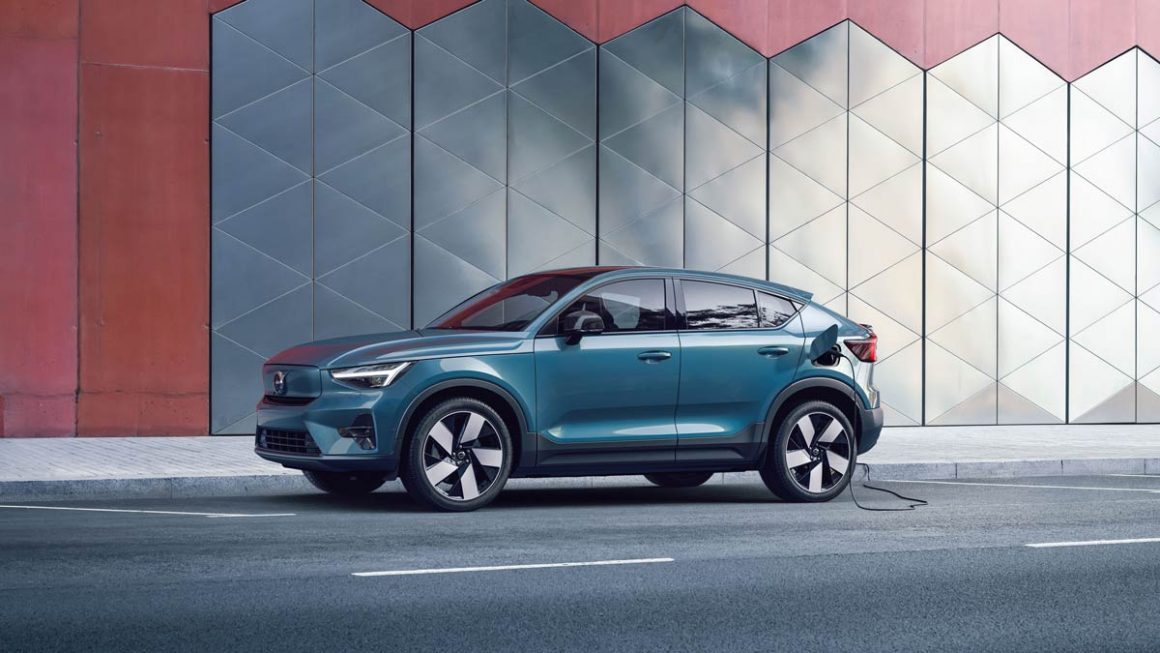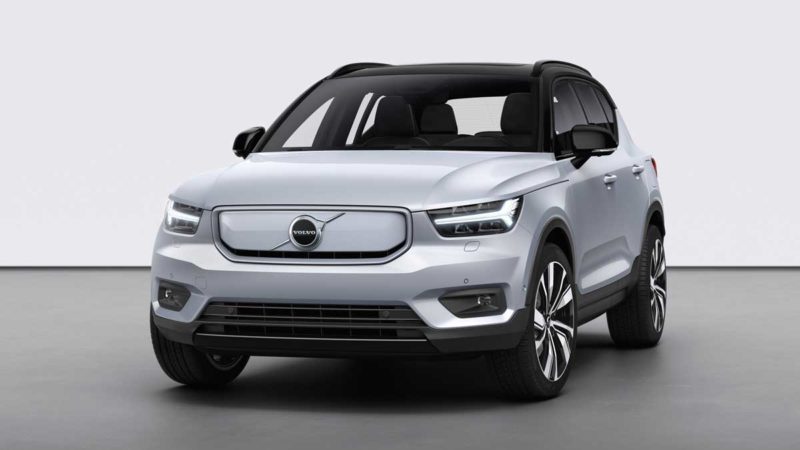Volvo has been forced to cancel scores of Australian orders for its popular pure-electric XC40 Recharge SUVs, as global supply constraints take their toll on production and deliveries.
Volvo blamed the global semi-conductor shortage and the lingering impacts of the Covid-19 pandemic for the decision to cancel 166 Australian orders.
It’s the latest in a string of roadblocks for the auto industry, and for Australia which finds itself at the end of the global queue for hard to obtain EVs, thanks to its lack of policies – in particular the absence of strict vehicle emission standards.
Demand for new EVs is surging in Australia, but they are proving difficult to obtain.
Delays for new Tesla Model 3s now stretch out to 2023, and the equally popular Model Y is still not available to order in Australia.
Orders for the award winning Ioniq 5 are on strict rations, and the EV6 is equally difficult to obtain because of a small Australian allocation. Many other EVs popular in Europe, including VW’s ID.3 and ID.4, and models from Renault and Peugeot, are not offered for sale in Australia.
Volvo XC40 Pure Recharge sales lead lost
The blow to Volvo electric deliveries comes less than a month after it topped the monthly sales of EVs in Australia for the first time, kocking Tesla off its perch.
Volvo delivered 122 XC40 EVs to customers in the month of April. But now, 166 orders will not make it to its latest sales reporting.
Greg Bosnich, director for communications at Volvo Australia, confirmed in a note to The Driven that customers have had orders cancelled.
He said, “the current global circumstances are challenging,” and also that Volvo Australia will “continue to work with our global colleagues to ensure best results for Australia and our customers.”
Refreshed 2023 XC40 Pure Recharge on way
Customers that have had orders cancelled will “get priority on model year 23 production start,” he said. “These vehicles are part of our June/July build and we should see them arrive August/September.”
Volvo is still in the process of getting some 2022 vehicles to customers, however, with deliveries scheduled for June .
The good news is that all orders going forward will get a refreshed vehicle with a new look and feel.
With its order page still open, Volvo now offers the XC40 Pure Recharge in both a single-motor and twin-motor variant.
Starting at $72,990 before on-roads for the single-motor variant with a 510-kilometre range, the twin-motor variant is now $2,500 more expensive and starts at $79,490.
“Customers have a choice to change their order to a single-motor variant, stay with the twin-motor, or if either of those does not satisfy the customer expectations the customer can request a refund of the deposit,” said Bosnich.
The XC40 Recharge is built at the same plant in Luqiao as the Polestar 2. Polestar was forced to remove the pixel headlights from the 2’s Pilot Pack and drop the price of the package because of supply shortfalls. Volvo had to make a similar decision.
Volvo C40 Recharge launch on track
Meanwhile, Bosnish says the arrival of the C40 Recharge remains on track.. It is expected to arrive by the end of the third quarter and will also be available in a single- or dual-motor format.
Volvo Australia MD Stephen Connor described the C40 in April as “more dynamic with a sleeker profile.”
The dual-motor, all-wheel-drive variant, which starts at $82,490 before on-road fees, features a 300kW/660Nm powertrain and accelerates from 0 to 100 km/h in 4.7 seconds.
A 78kWh lithium-ion battery with a 150kW DC fast charger gives an estimated 420km of WLTP-certified range. With these specs it can be charged from 10% to 80% capacity in 40 minutes.
The single-motor front-wheel-drive model costs $74,990 and has a smaller battery (69kWh), but it has a longer WLTP driving range of 434 kilometres per charge than the dual-motor model.

The next electric vehicle after that to arrive from Volvo is the XC90 replacement. Final timing is yet to be confirmed, but most likely in the fourth quarter. “Volvo Australia definitely wants it and will take that vehicle from production start,” said Bosnich.
The C40 will step away from the XC40’s eponymous moniker and is tipped to bear a name in its own right, which is thought to be “Embla”.
Other Chinese-made vehicles such as the refreshed MG ZS EV and the new-to-market BYD Atto 3 – both of which are expected to have a substantial presence on the local EV market – are not affected by the impacts of Covid shutdown in China, according to spokespeople for the companies. At least, for the time being.

Bridie Schmidt is associate editor for The Driven, sister site of Renew Economy. She has been writing about electric vehicles since 2018, and has a keen interest in the role that zero-emissions transport has to play in sustainability. She has participated in podcasts such as Download This Show with Marc Fennell and Shirtloads of Science with Karl Kruszelnicki and is co-organiser of the Northern Rivers Electric Vehicle Forum. Bridie also owns a Tesla Model Y and has it available for hire on evee.com.au.









